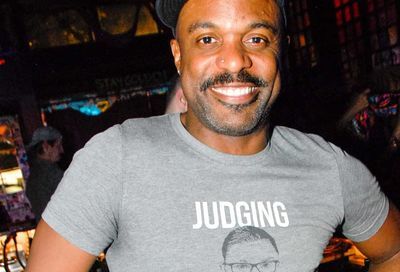Film Review: Matt Tyrnauer’s “Studio 54”
The hip and haunting documentary Studio 54 digs into the legend of New York's hottest nightclub

In the annals of storied New York City bars and nightclubs — the Cotton Club, Max’s Kansas City, the Paradise Garage — the legend of Studio 54 endures like none other. Burnished by the powerful chemistry of disco-era sex, celebrity, and scandal, 54’s rep still shines so brightly, hardly anyone recalls that the party lasted only 33 frenetic months.
In Studio 54 (★★★), Matt Tyrnauer (Scotty’s Secret History of Hollywood) chronicles the stunning two-and-a-half-year rise and fall of the nightlife supernova with a candor and clarity that might be the closest thing to reliving those halcyon ’70s nights.
In the words of the club’s late co-founder Steve Rubell, present throughout the film in archival footage and copious interviews, the success of any nightspot is “all about capturing a moment.” For 54, that moment was the post-Vietnam, post-Watergate, let’s just have a damn good time period of spring ’77, and the energy is palpable. Gorgeously grainy old news footage and publicity reels revel in the throngs of celebrities partying inside — Liz! Liza! Andy! Halston! Bianca! MJ! — as well as the crowds outside begging to be chosen by Rubell and his doormen to be allowed past the velvet ropes. Everyone who was anyone, and almost everyone else, was dying to be seen at 54.
Much of that footage has been unreeled or recreated elsewhere. What Tyrnauer’s film brings to the table, compared to previous documentaries and the fictionalized Ryan Phillippe-starring drama 54, is the authorized participation of Rubell’s co-founder Ian Schrager.
Schrager didn’t even appear as a character in that 1998 film, which co-starred Mike Myers as Rubell. It’s a fabulous get for Tyrnauer and for audiences that Schrager, now a successful hotelier and real estate developer, finally felt ready to spill on what made Studio 54 so happening. Through several interviews shot while the mogul was prepping a new coffee-table book celebrating the club, he lays out the timeline of one of the greatest adventures of his life. He reveals how he and Rubell — who was gay, although not at all vocal about it — were inspired by gay clubs around Manhattan like the Garage, Le Jardin, and The Gallery.
We see the work and creativity that went into creating the club out of the husk of an aging TV studio, turning it into an incomparable oasis of freedom for gays, artists, and the biggest names in film, music, fashion, and even politics. Nearly everyone who appears onscreen, both living and dead, quite persuasively notes that they never had experienced anything like Studio 54.
In his recollections, Schrager reveals, almost unintentionally, that perhaps the real secret behind the magic was the deep, abiding friendship he shared with his business partner. They were two very different boys from Brooklyn, friends who’d met at Syracuse University, and who shared a similar drive to succeed on the grandest scale they could imagine. Schrager’s genuine love for his deceased pal is touching.
The flip side of that love-fest, however, is that Schrager and Rubell cut all kinds of legal and ethical corners to live their dream. In their corner, they had Schrager’s reported ties to the Jewish mob, and the infamously viperous Roy Cohn as their attorney. With Cohn’s help, they fudged permits, ran without an actual liquor license, and skimmed millions off the books and into their pockets. Their greed was their downfall, and the film is remarkably honest about how it all fell to pieces.
Schrager, for his part, seems honest enough, given the expired statute of limitations related to their crimes, but still he soft-pedals their grift in order to keep the myth alive. He still has businesses to run after all, and self-mythologizing one of the great moments of New York City nightlife history certainly won’t hurt his bottom line.
Studio 54 is not rated, and opens Friday, Oct. 26, at Landmark’s E Street Cinema. Visit landmarktheatres.com.
Support Metro Weekly’s Journalism
These are challenging times for news organizations. And yet it’s crucial we stay active and provide vital resources and information to both our local readers and the world. So won’t you please take a moment and consider supporting Metro Weekly with a membership? For as little as $5 a month, you can help ensure Metro Weekly magazine and MetroWeekly.com remain free, viable resources as we provide the best, most diverse, culturally-resonant LGBTQ coverage in both the D.C. region and around the world. Memberships come with exclusive perks and discounts, your own personal digital delivery of each week’s magazine (and an archive), access to our Member's Lounge when it launches this fall, and exclusive members-only items like Metro Weekly Membership Mugs and Tote Bags! Check out all our membership levels here and please join us today!






















